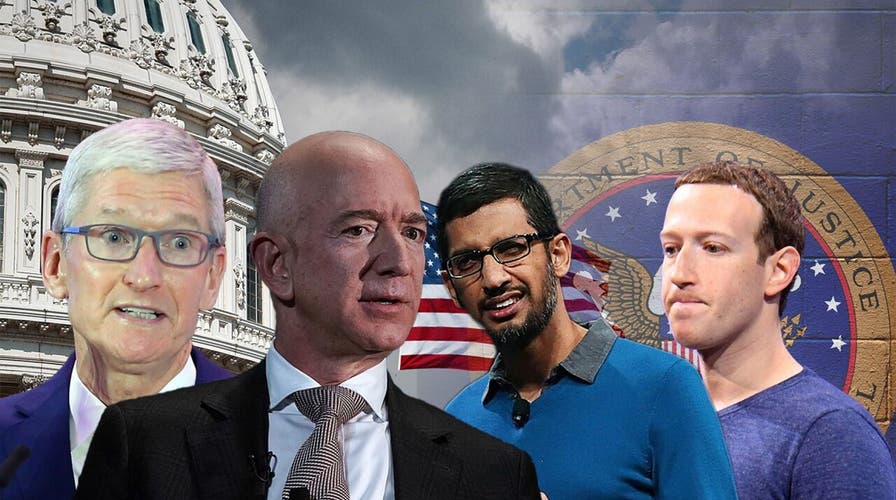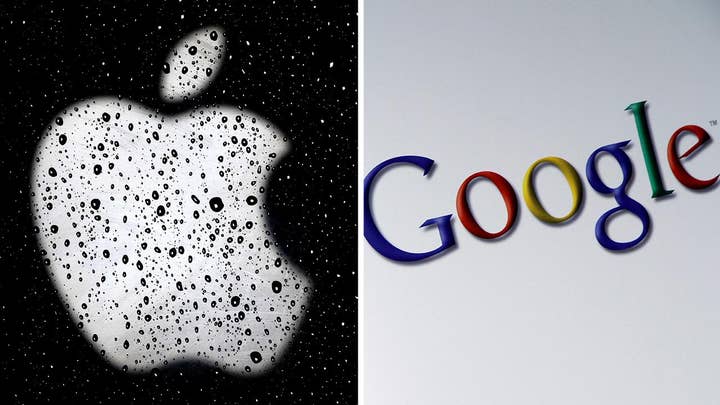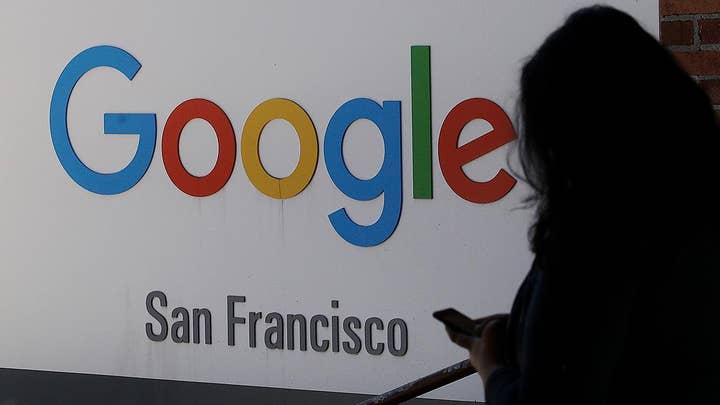Fox News Flash top headlines for June 12
Fox News Flash top headlines for June 12 are here. Check out what's clicking on Foxnews.com
The Justice Department's assistant attorney general highlighted the antitrust case against Silicon Valley's major players during a Tuesday speech.
Makan Delrahim described a range of possible arguments against tech companies as his office takes the lead in probing Google and, possibly, Apple. Separately, the Federal Trade Commission is overseeing inquiries into possible antitrust practices of Facebook and Amazon.
After discussing the breakup of Standard Oil in 1911, the 1982 dissolution of AT&T into the "Baby Bells" and the government's successful monopoly case against Microsoft in 2001 – which arguably helped lay the foundation for the success of Google and Yahoo – Delrahim explained several arguments that could be made against the world's most powerful tech companies on antitrust grounds.
Offering Low Prices or Free Services
Critics have pointed out Amazon's undeniable power in the area of American e-commerce and its foray into the world of bricks-and-mortar retail, but the company's defenders note the consistently low prices it offers on a gigantic array of consumer goods. In addition, Facebook and Google offer a multitude of services for free.
SILICON VALLEY IN THE CROSSHAIRS: GOOGLE, FACEBOOK, AMAZON AND APPLE FACE BIPARTISAN ONSLAUGHT

The biggest players in Silicon Valley are under increasing scrutiny from the U.S. government. Apple CEO Tim Cook, Amazon CEO Jeff Bezos, Google CEO Sundar Pichai and Facebook CEO Mark Zuckerberg. (Fox News)
WHY IS NANCY PELOSI IGNORING FACEBOOK CEO MARK ZUCKERBERG?
But Delrahim said the Justice Department takes a much broader view.
"The Antitrust Division does not take a myopic view of competition. Many recent calls for antitrust reform, or more radical change, are premised on the incorrect notion that antitrust policy is only concerned with keeping prices low," he said in his speech at the Antitrust New Frontiers Conference. "It is well-settled, however, that competition has price and non-price dimensions."
Besides price, "diminished quality" is a factor the Justice Department would consider.
"As an example, privacy can be an important dimension of quality. By protecting competition, we can have an impact on privacy and data protection. Moreover, two companies can compete to expand privacy protections for products or services, or for greater openness and free speech on platforms," Delrahim said.
Exclusive Agreements
Delrahim said the Antitrust Division has a history of investigating "exclusive conduct" under Sections 1 and 2 of the Sherman Act.
"[Exclusivity agreements] also can be anticompetitive, however, where a dominant firm uses exclusive dealing to prevent entry or diminish the ability of rivals to achieve necessary scale, thereby substantially foreclosing competition," he said. "This is true in digital markets as well."
SOCIAL MEDIA CONTRIBUTES TO RADICALIZATION, TOP TWITTER EXEC SAYS
The Justice Department's antitrust case against Microsoft focused in part on that company's inclusion of its own browser in its Windows operating system, which the federal agency found discouraged users from seeking alternatives.
“This theory is broadly applicable to other technology markets,” Delrahim added.
CREEPY DEEPFAKE AI LETS YOU PUT WORDS INTO SOMEONE ELSE'S MOUTH
Swallowing Up Competitors
Facebook and Google have gobbled up hundreds of other companies – some of them former competitors – over the last two decades. Delrahim indicated that this type of behavior could be considered anticompetitive.
“It is not possible to describe here each way that a transaction may harm competition in a digital market, but I will note the potential for mischief if the purpose and effect of an acquisition is to block potential competitors, protect a monopoly, or otherwise harm competition by reducing consumer choice, increasing prices, diminishing or slowing innovation, or reducing quality," he said. "Such circumstances may raise the Antitrust Division’s suspicions.”
According to The New York Times, Google has acquired at least 270 companies over nearly two decades, including YouTube, which was a competitor to Google Video; Waze, which competed with Google Maps; and DoubleClick, which had been the tech giant's chief advertising competitor.
Facebook has acquired 92 companies since 2007, including Instagram in 2012 and WhatsApp in 2014. The Menlo Park, Calif. based company also bought and shut down other social networks, including Gowalla, Beluga and Nextstop, the Times reports.
ORGANIZER OF GOOGLE WALKOUT QUITS, ALLEGING RETALIATION BY THE TECH GIANT
AMAZON'S SECOND NEW YORK GO STORE SERVES COFFEE, ACCEPTS CASH
Still, Delrahim said that acquisitions can be positive if they "combine complementary technologies or bring products and services to market that would not have been made available to consumers otherwise."
Although these investigations may take years to complete, Delrahim made it clear that the Justice Department is taking a serious look at Silicon Valley's main players.
"While antitrust is not a panacea for every policy challenge presented by the digital market, the Antitrust Division will not shrink from the critical work of investigating and challenging anticompetitive conduct and transactions where justified," he said. "That is because where competition is harmed, consumers and markets lose with higher prices, lower quality, lower rate of innovation, less free speech and even lower privacy protections."























